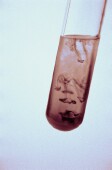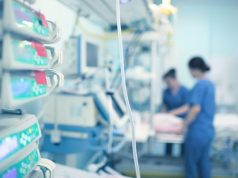Accuracy not affected, slightly poorer precision seen for some analytes
TUESDAY, Aug. 11, 2015 (HealthDay News) — Use of drones (unmanned aerial systems [UAS]) for transportation of laboratory specimens does not affect the accuracy of routine chemistry, hematology, and coagulation test results, according to a study published online July 29 in PLOS ONE.
Timothy K. Amukele, M.D., Ph.D., from Johns Hopkins University in Baltimore, and colleagues assessed phlebotomy samples (three-paired samples from 56 adult volunteers totaling 336 samples total) for 33 common chemistry, hematology, and coagulation tests. Half of samples (168) were driven to the flight field and held stationary, while the other half were flown in the UAS for times ranging from 6 to 38 minutes. Results were evaluated based on statistical methods as well as performance criteria from four distinct clinical, academic, and regulatory bodies.
The researchers found that results from flown and stationary sample pairs were similar for all 33 analytes. For all analytes, bias and intercepts were below 10 and 13 percent, respectively. There was a mean difference of 3.2 percent for glucose and <1 percent for other analytes, based on Bland-Altman comparisons. Using the strictest performance criteria, only bicarbonate did not meet quality assurance, which resulted from poor precision rather than bias. Based on clinical stratification (normal versus abnormal), the overall concordance was 97 percent. Length of flight had no impact on the results.
“Transportation of laboratory specimens via small UASs does not affect the accuracy of routine chemistry, hematology, and coagulation [test] results from selfsame samples,” the authors write.
One author is employed by Vayu, a drone company.
Copyright © 2015 HealthDay. All rights reserved.








